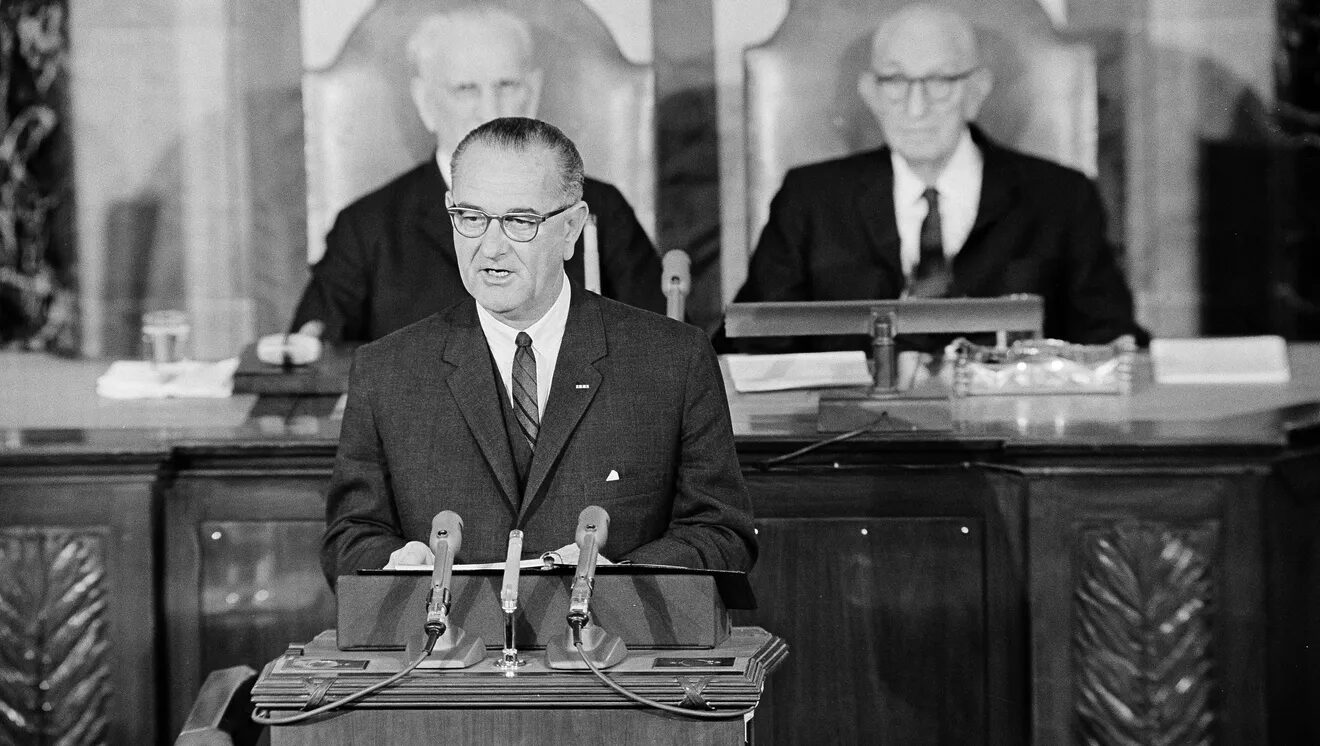
Celebrating 60 Years of TRIO Excellence
In honor of the sixtieth anniversary of the Federal TRIO Programs, the Council for Opportunity in Education (COE) invites you to be part of a historic celebration.
- Historical Timeline
- Event Planning Guide
- Download Logos
- coe backgrounder
- First-Generation College Student
TRIO aids low-income students’ college access
COE and its members support millions of low-income, first-generation students through college access and retention services annually.
President Lyndon Baines Johnson never forgot his experience as a young man teaching impoverished children in a Texas elementary school. As part of the Great Society ushered in by his Administration, the United States saw the proliferation of several anti-poverty programs, to include Upward Bound, which was created through the 1964 Economic Opportunity Act. A year later, the Higher Education Act of 1965 created the Talent Search program. In addition to these two programs, in 1968, Student Support Services was rolled out as part of the Higher Education Amendments. Together, the three programs became known as “TRIO” but grew to include four more student programs that followed over the next several decades: Veterans Upward Bound, Educational Opportunity Centers, the Ronald E. McNair Postbaccalaureate Program, and Upward Bound Math-Science. In 1976, the federal government added a Training Program for Federal TRIO Programs for professional staff.
Discover the Legacy of TRIO Programs
Don’t miss out on the exclusive TRIO 60th Anniversary Commemorative Timeline
Join us in honoring the educators, students, and advocates who have made TRIO’s 60-year journey possible. As we reflect on the past, we also look forward to continuing the mission of equitable education for all. Since 1964, TRIO programs have empowered millions of first-generation, low-income, and underrepresented students to achieve their dreams of higher education and beyond.
Explore Key Milestones
Immerse yourself in the rich history of TRIO, from its founding under the Economic Opportunity Act to its expansion into a network of life-changing programs. This timeline highlights:
- Groundbreaking legislation that made TRIO possible
- Inspiring stories of TRIO alumni who’ve changed the world
- Milestones in advocacy, funding, and innovation that continue to impact communities nationwide
Media Inquiries
For media inquiries or to arrange an interview, please contact Terrance L. Hamm, Associate Vice President of Communications and Marketing via email: terrance.hamm@coenet.org or call (202) 347-7430.
News & Impact
-
Advocacy Update
Immediate Action Steps in Response to Federal Funding Freeze
Kimberly JonesJanuary 28, 2025
-
Advocacy Update
Building a Strong Foundation for TRIO in the 119th Congress
Owen ToomeyJanuary 17, 2025
Advocacy Update
Trump Administration Reverses Federal Grant Funding Freeze Amid Legal Challenges
Kimberly JonesJanuary 30, 2025
As COE shared last night, the Office of Management and Budget (OMB) has ordered a pause to the disbursement and obligation of federal funds, to go into effect at TODAY at 5:00 p.m. ET. This means that the G6 system for drawdowns will not be available after 5:00 p.m. ET tonight. Given the immediacy of this action, COE advises TRIO grantees to take these actions.
Stay Connected
Learn more about how the Council for Opportunity in Education works in conjunction with colleges, universities, and agencies to help low-income students enter college and graduate.